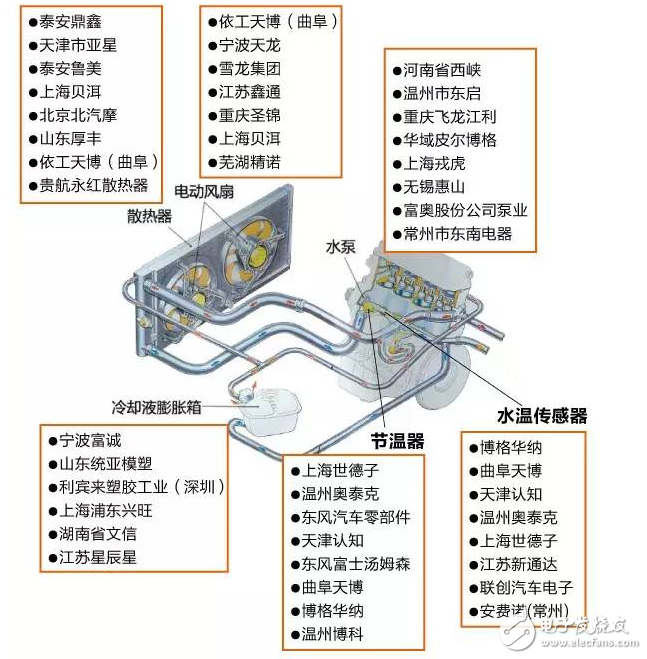Although gasoline engines have undergone a number of improvements, the efficiency of gasoline engines is still not high in converting chemical energy into mechanical energy. Most of the energy in gasoline (about 70%) is converted into heat, which is the task of the car's cooling system. In fact, a car driving on a highway has enough heat from the cooling system to warm two ordinary houses! The main job of the cooling system is to dissipate heat into the air to prevent the engine from overheating, but the cooling system has other important functions. Engines in automobiles operate best at the appropriate high temperatures. If the engine gets cold, it will speed up component wear, which will reduce engine efficiency and emit more pollutants.

Therefore, another important function of the cooling system is to warm the engine as quickly as possible and keep it at a constant temperature. The fuel continues to burn in the car engine. Most of the heat generated during the combustion process is exhausted from the exhaust system, but some of the heat is still trapped in the engine, causing it to heat up. When the temperature of the coolant is about 93 ° C, the engine is in optimal operation. At this temperature: the temperature of the combustion chamber is sufficient to allow the fuel to completely evaporate, thus better burning the fuel and reducing gas emissions. If the lubricating oil used to lubricate the engine is thinner and less viscous, the engine parts can operate more flexibly, and the energy consumed by the engine as it rotates around its own components will also be reduced, and the metal parts will be less prone to wear.
In the entire cooling system, the main components are thermostats, pumps, radiators, electronic fans, water temperature sensors, liquid storage tanks and other components.
Hydraulic Servo Systems,Servo System Harness,Hydraulic Bldc Motor,Servo Motor Pump
Zhejiang Synmot Electrical Technology Co., Ltd , https://www.synmot-electrical.com